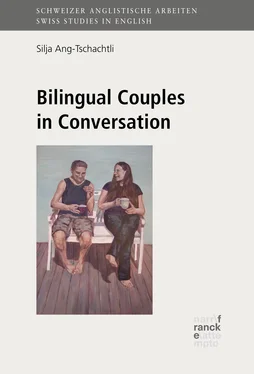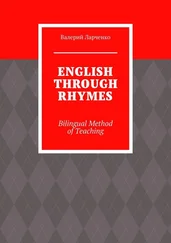Of course, many Swiss have mixed feelings about the influence of the English language, as can be seen in the following quotation:
For some, embracing English means catching up with the future and assuring Switzerland a leading place in the ‘knowledge society’ of the twenty-first century. For others, letting in the Trojan horse of English means opening the gates to a worldwide phenomenon that will ultimately destroy part of the linguistic and cultural heritage of multilingual Switzerland. (Murray 2003a: 105)
Watts paraphrases a 1989 report on the language situation in Switzerland in which English “is presented as an ominous presence threatening the harmonious coexistence of the four national languages within Switzerland” (2001: 308). This discourse seems to persist even though linguists postulate that the use of English as a lingua francalingua franca in Switzerland is unlikely to become the norm and should not be presented as a threat (Andres and Watts 1993: 126). Given this ambivalence that many Swiss feel with regard to the language, it is not surprising that the introduction of English at primary school level is such a controversial issue (see section 2.2, “Multilingualism in Switzerland”).
English is also used frequently in a private and professional context among the Swiss population, though there is great local variation in the frequency of its use. English is spoken most commonly as a home language in the major urban regions and economic centres such as Zurich, Geneva and Basle, as well as in the tourist regions (Lüdi and Werlen 2005: 65). With regard to the places of residence of the couples in this study, this means that there are considerable differences in the number of residents who speak English as a main language in these areas. A relatively large number of residents (8.2% of the population) consider English to be (one of) their main home language(s) in the Zurich area, as opposed to only 2.8% in the St Gall area. The figures for the areas where the other participants in this study reside lie somewhere between these numbers.7 The prominence of English is notable in Zurich, and, in my personal experience, it is the exception rather than the norm to take a ten-minute tram ride through the centre of Zurich without hearing someone converse in English.
English is not only used to communicate with native speakers, it also serves as a lingua franca in many situations, to communicate both with Swiss from different linguistic areas and with foreign visitors. Moreover, English is used regularly in the work environmentwork environmentenvironmentprofessional. When asked which language(s) they speak regularly at work, 11.5% of the population reported that they use English. In contrast, 41.8% speak Swiss German at work, 21.2% Standard German, 18.5% French, 5.5% Italian and 0.25% Romansh (BFS 2016a). This shows that English “is an important language, but one of several important languages” (Murray 2003a: 88). At the same time, these figures reveal that English is spoken more frequently at work than Italian or Romansh, even though the latter are national languages. The percentage of people who speak English at work depends greatly on the region and its economic situation, as well as on the profession of the person.
Because of its important role in a variety of areas like business, finance, education and tourism, English is held in high esteem by the Swiss and many people strive to speak the language well. Consequently, it is not only the symbolic value of English that is very high in the Swiss marketplace, but also the economic value of the language. This was confirmed in an economic study, which demonstrated that English skills have a high labour market value in Switzerland, and “can be associated with remarkably high and statistically robust wage premia [ranging] from 12% to 30%” (Grin 2001: 65). These returns are dependent on the language region and the sector, as well as on the individual’s gender, as the premia appear to be higher for men (Grin 2001: 73–74).8
Finally, it should be noted that, since English is an important and prestigious global language, bilingual native speakers of English are often termed elite bilingualsbilingualeliteelite bilingual. This is particularly the case if they are economically privileged and if their second language is a world language (Boyd 1998: 32), or at least important in the local community. These factors tend to facilitate the integration of bilingual immigrants. Elite bilinguals are less likely to be subject to discrimination or prejudice than other bilinguals; they themselves as well as the local community tend to view their bilingualism positively, and their children often become highly proficient bilingual speakers (Boyd 1998: 32). This was confirmed in Boyd’s study of the language practices of four immigrant groups living in Denmark, Finland and Sweden. When these groups were compared, “there turned out to be significant differences in their overall amount of use of majority and minority language between the Americans and the Finns on the one hand and the Turks and the Vietnamese on the other. The former two groups tend to use more majority language and the latter two more minority language” (1998: 47). Boyd also discovered that the children of the American respondents reached a high level of bilingual fluency, and that these elite bilinguals tended to “‘disappear’ in the host society” (1998: 31). There have been no comparable studies on native speakers of English in Switzerland, but it can be assumed that their situation is relatively similar. In all probability, the label of elite bilinguals may be applied to all English-speaking partners in this book, which means that they and their local community are likely to have a positive attitude towards their bilingualism.
3 The communication of bilingual, bicultural couples
3.1 Introduction
Bilingualismbilingualism is often, though by no means always, connected to biculturalismbiculturalism. The couples analysed in this study are bilingual as well as bicultural; however, there are, of course, also bicultural couples who speak the same or a similar language (e.g. Francophone Swiss-Canadian, Anglophone South African-British) or bilingual couples who share a (similar) culture (e.g. French- and German-speaking Swiss). Moreover, culture cannot always be separated from language. In fact, it has been proposed that the manner in which we speak may be influenced by an underlying “cultural scriptcultural script”, which, in turn, is based on cultural norms and practices (Wierzbicka 2004: 98). These scripts help us “capture background norms, templates, guidelines or models for ways of thinking, acting, feeling, and speaking, in a particular cultural context” (Goddard and Wierzbicka 2004: 157). Consequently, it has been suggested that we cannot but “interpret speech through the ‘filter’ of our native language/culture” (Gass and Varonis 1991: 130; cf. Sapir 1958 [1929]: 69).
Yet even though culture and language are interlinked, and biculturalism and bilingualism often overlap, I have decided to discuss previous work on the two areas separately, because most studies seem to focus on one or the other. Thus, I first outline research on cross-cultural couples, and then discuss a number of studies on bilingual couples. The present chapter only includes general aspects with regard to living in a bilingual, bicultural relationship. Previous research in fields which are explored more extensively in my analysis is discussed at the beginning of the corresponding chapters.
3.2 Bicultural couples: Background and challengeschallengescultural
3.2.1 A word on culture and biculturalismbiculturalism
Cultureculture is hard to grasp, yet it permeates many aspects of our life and being, even though we may not always be aware of it. Grosjean highlights the different areas of our lives that are interconnected with culture:
Читать дальше












